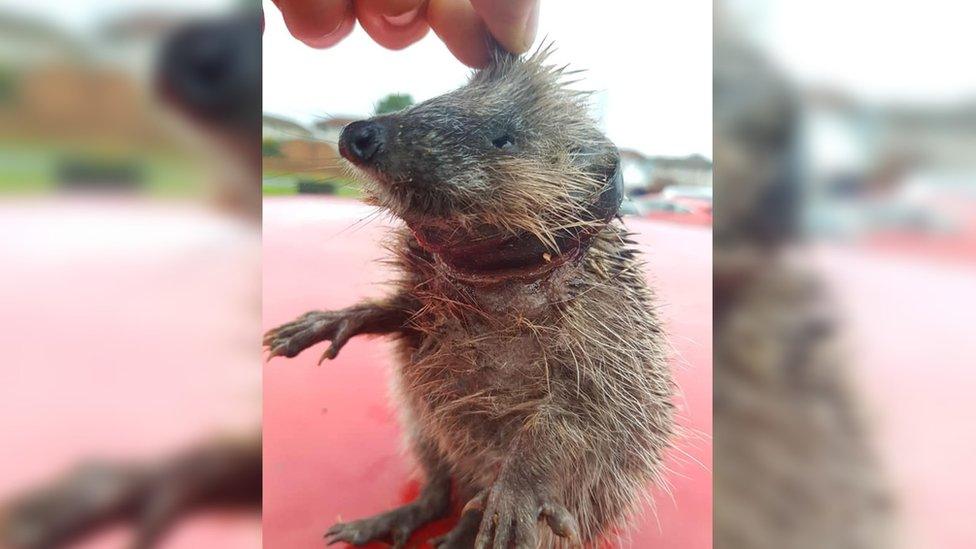Blyth Wildlife Rescue unable to accept patients due to money woes
- Published
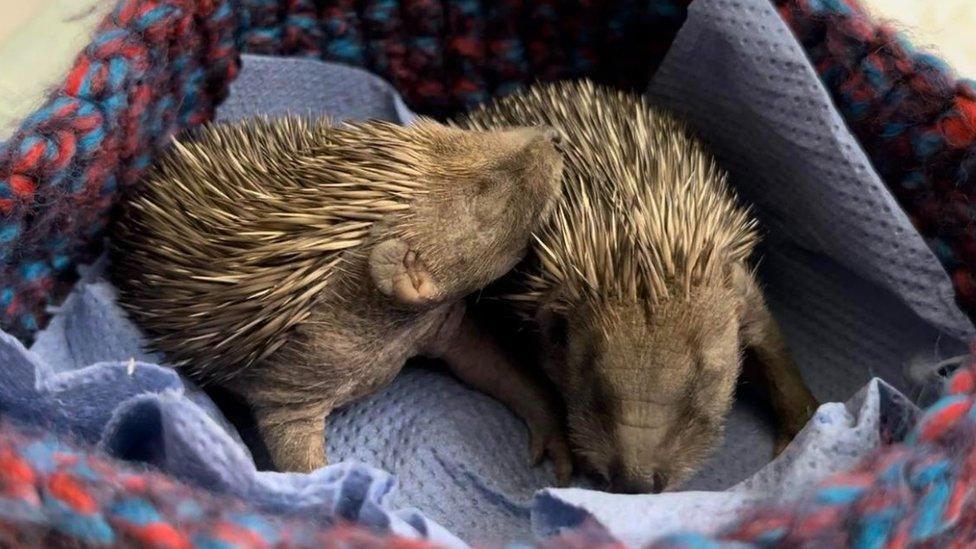
The charity is currently caring for 150 patients including hedgehogs
A wildlife sanctuary has closed its doors to new admissions because of spiralling debts.
Blyth Wildlife Rescue is caring for 150 sick and injured birds and animals but cannot take any more casualties because of £4,000 unpaid vet bills.
Charity founder John Anderson said an online appeal had raised more than £10,000 in just one week.
But he said it costs £60,000 to run two centres in Blyth and Morpeth and donations had fallen.
Mr Anderson believes the cost-of-living crisis is to blame. In 2021, the charity received around £58,000 but this plunged to £37,000 last year.
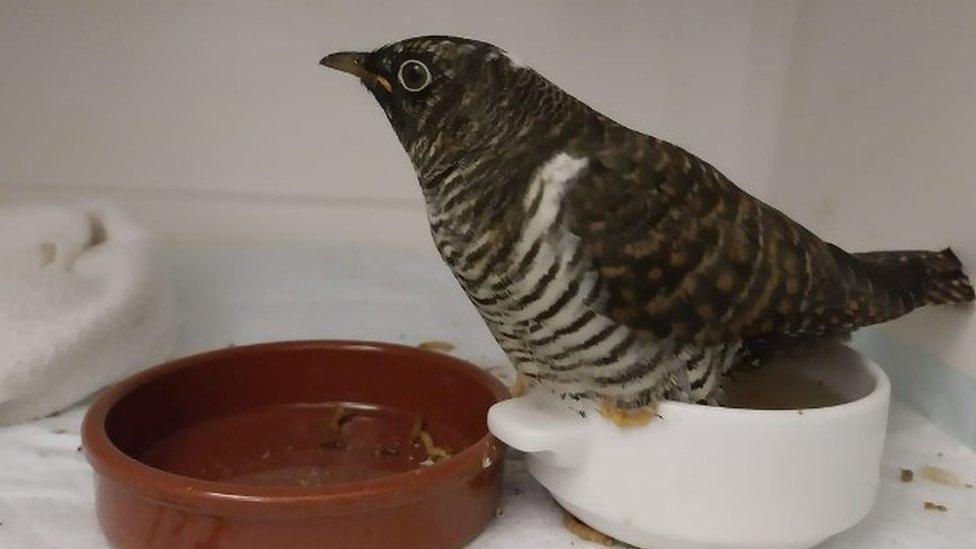
An injured cuckoo was one of the last patients to be admitted to the centre before it had to close its doors on Thursday
Mr Anderson, who founded the rescue service in 2006, said: "We have sadly had to make the decision to close our doors for the foreseeable future.
"We are unable to admit any new patients from the public or veterinary practices due to a lack of funding.
"Our funds have hit an all-time low with outstanding veterinary bills exceeding £4,000.
"Our centre is still full of wildlife casualties, which remain our priority for the coming months.
"We need to use the remaining funds to ensure they are fed, medicated and provided with the care they need to be returned to the wild."
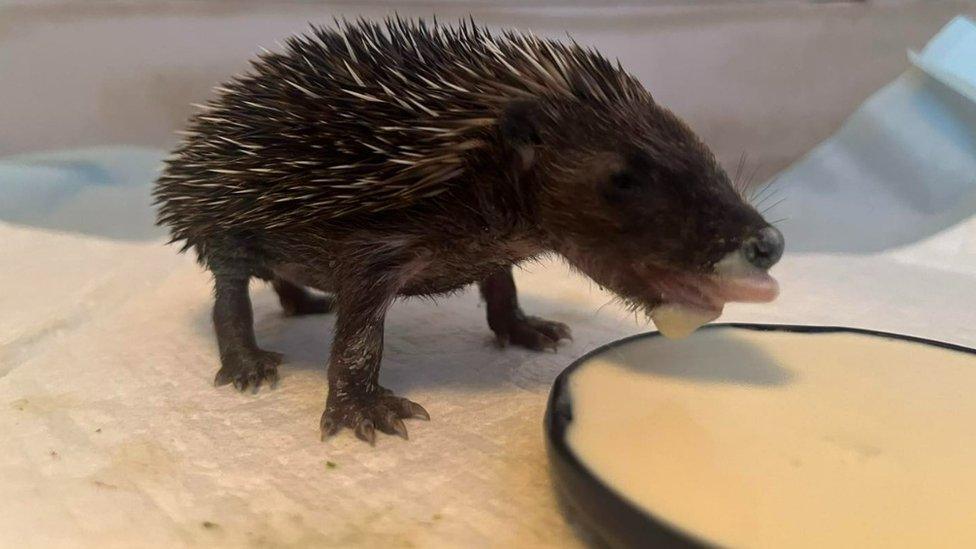
Hoglets are weaned on puppy mousse before moving on to cat food
Mr Anderson, who fits his rescue work around his job as a joiner, said about 40 volunteers were caring for many patients including hedgehogs and birds like kittiwakes, puffins and guillemots.
One of the last patients to be admitted was an injured cuckoo that will need weeks of cage rest before it can be released.
The majority of casualties are injured in dog attacks and many birds get trapped in nets or impaled on objects.
Mr Anderson said their centres were often the "last chance saloon" for many injured birds and animals who needed "round-the-clock" care.
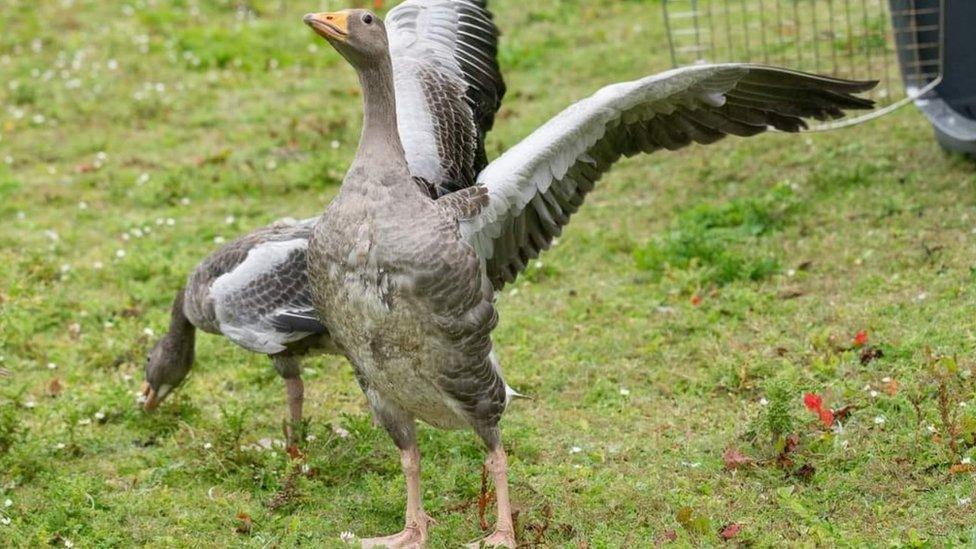
The centre recently released greylag goslings that volunteers had looked after for weeks
Mr Anderson said: "Our centre is full of young hedgehogs in need of help.
"Many of these are found out during the day and are too small to be on their own."
He said the centre's youngest patients are four orphaned hoglets that are weaned on puppy mousse which costs around £50 for 24 small tins, before moving on to cat food.
"The hoglets are being hand reared which is a difficult job to do as they need weighing, toileting and feeding every two to three hours," Mr Anderson said.
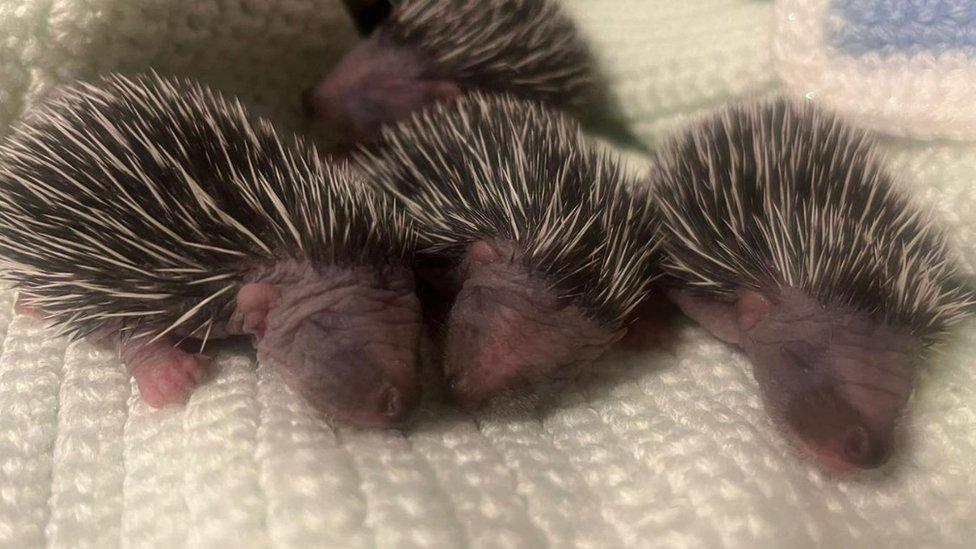
Four baby hedgehogs, whose mother died, are being cared for at the centre
In May the centre took in a fox cub, found alone and dehydrated in Beadnell, Northumberland.
The cub was discovered to have an abscess in his abdomen and was nursed back to health for many weeks.
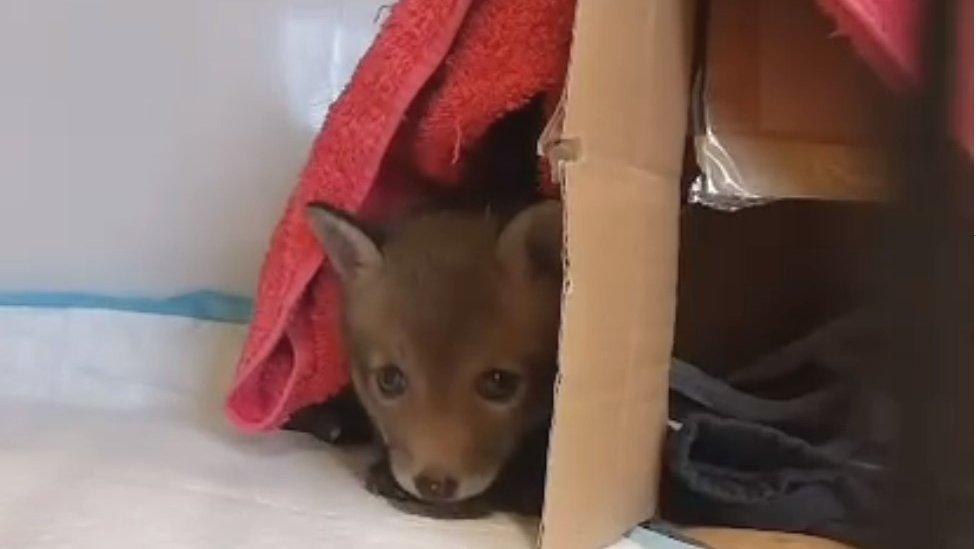
It took weeks to nurse this fox cub back to health after it was found dehydrated and suffering from an abscess

Follow BBC North East & Cumbria on Twitter, external, Facebook, external and Instagram, external. Send your story ideas to northeastandcumbria@bbc.co.uk, external.
Related topics
- Published9 May 2023
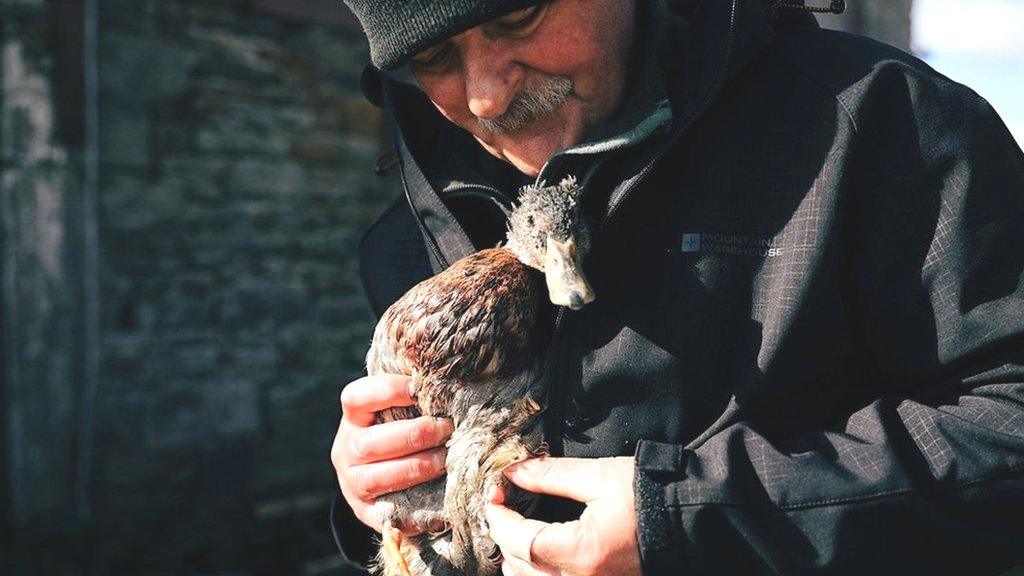
- Published30 October 2022
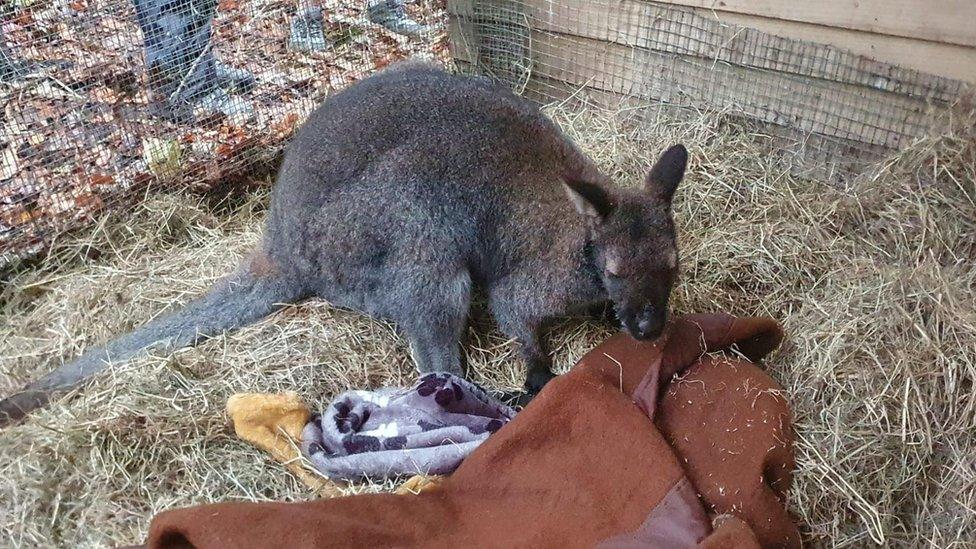
- Published21 October 2020
